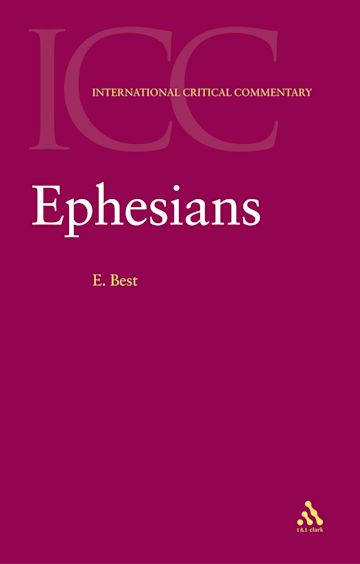A scene from The Canterbury Psalter (12th century)
Blog
When Did He Come Preach Peace?

Ephesians 2:17 says that Christ “came and preached peace to you who were far off and peace to those who were near.” (ἐλθὼν εὐηγγελίσατο εἰρήνην ὑμῖν τοῖς μακρὰν καὶ εἰρήνην τοῖς ἐγγύς)
It’s a powerful statement, especially following the previous statements that Christ in person “is our peace” (2:14) and “made peace” (2:15). The sequence of being, making, and proclaiming peace certainly positions Christ as the prince of peace in what he is, does, and announces.
Leaning in a little closer, commentators rightly ask: when? When did Christ come and preach peace to Gentile (“far off)” and Jew (“near”)? It’s a great question, and has produced some excellent commentary. In this post, I just want to relay a brief survey of as many interpretations as I can. They are gathered in Ernest Best’s 1998 ICC commentary, 271-273. Best provides sources for each view, identifying previous commentators who have championed them.
- Maybe before the incarnation? The NT sometimes speaks of Christ being present somehow in this earlier economy (recall 1 Cor 10:4, “the rock was Christ”). But there are two conditions in Eph 2:17 that make it unlikely Paul is thinking that way here: first, it seems that Christ does this preaching after making peace on the cross, and that his preaching includes (perhaps especially or emphatically includes) Gentiles.
- Maybe the incarnation itself is the coming of Christ to preach? Very broadly, and blurring our eyes about the conditions mentioned above (post-cross, to Gentiles).
- Maybe the preaching happened during Christ’s ministry? But the same two conditions make this unlikely, even if we carefully develop the handful of times that Jesus interacted with Gentiles. (Best mis-numbers this as a second number 2.)
- Maybe the preaching happened in the event of the resurrection, or in the work of the risen Christ? This nicely resonates with the story of Jesus coming to the disciples and saying “Peace be with you,” but then again the disciples are hardly “far off,” that is, not Gentiles.
- Maybe Christ preached peace by sending the Holy Spirit? But while the Spirit empowers proclamation, and personally bears witness, and is poured out on all flesh (not just Jewish flesh), it seems doubly odd to call the Spirit a preacher, or his arrival a preaching, and then to further identify it as Jesus’ own preaching. I mean, you could make this one work, but it’s not an obvious or natural option.
- Maybe Christ preaches “in that he instructs and inspires those who then proclaim the Gospel to Jew and Gentile; since he is the content of what they preach he may be regarded as himself the proclaimer.” (Best, 272).
- Maybe Christ’s ascension into heaven is a kind of public manifestation of his identity and what he has accomplished? But it would be odd to use the verb “he came” to describe this ascent away from us.
- Maybe the cross itself is the preaching?
- Maybe the the entire life of Jesus is the preaching? That is, not any particular event in it but “the whole life of Jesus from incarnation to death… regarded as a unit, which as a unit proclaims peace. (Best, 273. Best counts this as a sub-option under number 8; his numbered list only goes to 8.)
- Maybe “he came” is an over-translation of the participle ἐλθὼν, which should be read as an unnecessary or non-meaning-bearing word that keeps the sentence moving along. Best only reports this in a footnote as a view argued in a Dutch commentary, and the evidence he suggests for the case is not strong. I just feel obligated to list it as an option because we’re trying to consider the full spectrum of views, and if this argument had any force it would undercut the others.
Best is not quite won over by any of the views, but says “if we have to choose” then 3 and 6 are “probably least objectionable.” (273)
I suspect this is a place where the text invites some theological construction. An interpreter could start a little further back, in the doctrine of trinitarian missions, to get a higher point of view for the claim that Christ came and preached peace to the Gentiles and to the Jews. Perhaps the entire invisible mission of the Son, in conjunction with the mission of the Holy Spirit, would provide the necessary vantage. But not in this blog post.
About This Blog

Fred Sanders is a theologian who tried to specialize in the doctrine of the Trinity, but found that everything in Christian life and thought is connected to the triune God.


